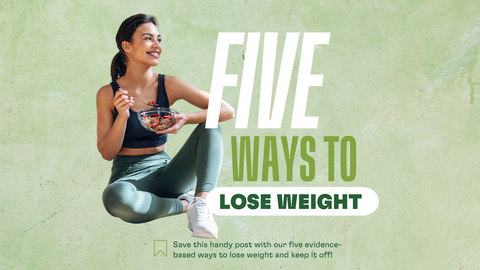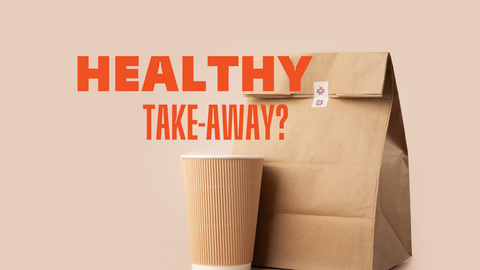When the new year rolls in it can be so appealing to go on a fad diet to get rid of the unwanted Christmas kilos or reach the goal weight you have set yourself. Before you embark on a restrictive diet you know you aren’t going to be able to maintain, have a read of these five evidence-based ways to help find your healthiest weight
1. Don’t diet
It's no coincidence that while most diets were invented from the 1980’s onwards, obesity rates have tripled since then. Dieting is associated with weight gain and obesity. It can be so appealing to jump on a fad diet when you want a quick fix but the reality is diets have a less than 5% success rate and are more likely to make you fat. Slow and steady wins the race!
2. Eat in a calorie deficit
Losing weight involves being in a calorie deficit which can be achieved through moving more, taking in less calories or doing a combination of both. When you consume less calories than what you expend you will lose weight.The key is to pick a diet or way you eating that induces a calorie deficit but also is able to be adhered to for a long-period of time.
People get hung up on how many grams of protein, fat and carbs they should be eating but really its the caloric restriction, not macronutrient ratios that determines weight loss when we look at scientific studies. Activate Foods has an amazing range of meals including lower calorie and lower carbohydrate meals which can help you achieve a calorie deficit without being hungry or feeling restrictive.
3. Eat a higher-protein diet
Protein is fantastic at keeping you full. When you’re dropping your calories, keeping your protein intake up can help with hunger and reducing cravings. It also will help with maintaining lean muscle mass and losing muscle mass in conjunction with some resistance exercise during weight loss. Aim for between 1-1.5g of protein per kilo of your ideal weight e.g. 60-90g of protein if your goal weight is 60kg.
4. Look at your meal timing
There has been a lot of interest of late on on “when to eat.” Meal timing and the circadian rhythm play a role when it comes to weight management. Eating late can cause changes to our circadian rhythm or inbuilt body clock resulting in decreased resting energy expenditure, and decreased glucose tolerance (i.e. we become less efficient at using carbohydrates up for energy and balancing our blood sugar levels).
Skipping breakfast as well as late night eating appear to increase the risk of being overweight as well as developing prediabetes and type two diabetes. Try your best to eat inside a 12 hr window and consume a greater share of the total calorie intake earlier in the day, and maintain consistent overnight fasting periods.
5. Make friends with fibre
When you think of fibre, think of fruits, vegetables, whole grains, beans, nuts and seeds. Fibre slows down how fast our blood sugar levels rise and also slows down how fast food empties from the stomach and is therefore associated with weight loss and maintaining a healthy weight as it helps to keep us full and therefore helps to lower our calorie intake.
The Mediterranean diet involves high intake of fruits and vegetables, poultry, and fish and dairy products, and little to no consumption of red meat and has been shown to be effective for weight loss as well as numerous other health benefits like reduced rates of type two diabetes, heart disease and dementia. Aim for 2 serves of fruit and 5 serves of vegetables. Always opt for wholegrains like rolled oats, soy & linseed bread, brown rice, quinoa and seeded crackers. Add legumes to meals.
Losing weight and keeping it off seems to be most successful when there is a combination of
- Reducing caloric intake
- Increasing physical activity and
- Behaviour change therapy i.e. learning how to change your eating and lifestyle habits long-term
Working with a dietitian is a great way to help educate you and set you on the right path! Book in with a dietitian today at Eatsense!


